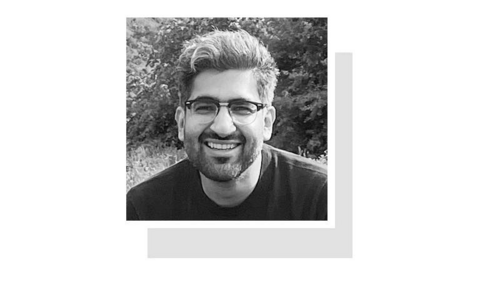LAHORE: Lahore was recently treated to a 54-hour long marathon which brought together key players of the technology and entrepreneurship fields to brainstorm and flesh out ideas.
Pakistan's fifth and Lahore’s fourth official ‘Start-up Weekend’ (Twitter: #swlhr) was held last week at the Lahore University of Management Sciences (Lums), an event that saw creative, passionate and motivated individuals from a broad array of backgrounds — such as developers, designers, marketers, project managers and start-up enthusiasts — come together to share ideas, form teams, build products and launch start-ups.
Simultaneously, National University of Computer and Emerging Sciences (NUCES FAST) was holding its annual software and IT festival, SOFTEC ’15, which is broader in scope, incorporates various tech related competitions and exhibitions and is more tech industry and professional oriented rather than just being concerned with start-ups.
|
The start-up culture has taken the world by storm in recent times, hot on the heels of the paradigm shift in global economies as the focus moves from brick and mortar enterprises to idea-based digital economies.
Start-up Weekend is an initiative that is powered by "Up Global", which is a non-profit dedicated to fostering entrepreneurship, grassroot leadership, and strong communities.
It aims to achieve these goals through these events by encouraging motivated, talented and creative individuals to come together behind ideas and push them towards entrepreneurial success.
The goal is not to create the next Facebook or Twitter (although that tantalising possibility exists!) but to empower people to come together to create ideas that transform into businesses and the initiators into innovators and leaders.
|
It is through this grassroot, hands-on approach that the start-up culture seeks to foster positive changes in communities and individuals' lives.
According to Anurag Maloo, regional manager at UP Global and their representative at SWLHR, a large percentage of Silicon Valley start-up founders are South Asians. He believes that due to India’s recent economic growth and stability, many are returning back home to give back to the community and set up very successful ventures.
Considering that South and East Asia are the new economic powerhouses, Anurag is of the belief that the 21st century will belong to South Asia.
The success stories from unlikely places such as Iran, Iraq and Palestine are already rolling out and the energy and passion being harnessed there is impressive.
Pakistan's start-up potential
Inculcating the start-up culture in Pakistan is absolutely imperative due to the unique situation that the country finds itself in with soaring unemployment, underemployment and one of the worlds highest percentages of youth amongst the population.
Currently, Pakistan is the 6th most populous country in the world with 180 million people and an astounding 60 per cent of them between the ages of 15-45.
According to projections in the Pakistan Start-up Report, broadband penetration and smartphones are also found with relatively high density for the region, as well as one of the worlds most capable and well educated freelance workforce. All this can lead to a vibrant start-up culture.
A healthy start-up culture is just what the Pakistani populace needs as it provides them the hope of a way out of the socio-economic and cultural quagmire that it is sinking in. Rather than depend on external factors and messiahs for assistance, the start-up culture motivates societies to strive for their own empowerment and betterment themselves.
Although there have been quite a few success stories, there is not nearly as much as there lies potential for. The start-up culture here mostly revolves around IT and that too specifically mobile app development, but there are efforts being made to stretch it beyond that into other projects.
Pakistan needs to play to its strengths, provided that essential ingredients are there: talent, start-up culture, adequate density of tech-savvy populace and facilities, some capital and an encouraging, non-hindering regulatory environment.
Realistically speaking, UP Global’s own figures state that a much smaller percentage of ideas make it to the stage where they exist as real products, but the real success is the large number of people that learn to work as teams and tap into their leadership potential.
Some interesting ideas presented at this start-up weekend were:
Document Complete
This is a start-up that could only be conceived in countries like Pakistan. It is a crowd sourced, algorithm-fuelled document repository that provides step by step guidelines as well as printable documents needed for doing pretty much anything in the labyrinthine Pakistani document and form system ranging from Nadra forms to those needed for passports.
Shahi Sawaari
In second place, this adds Uber-like functionality to the already existent and vast rickshaw network in cities. It is basically a web and mobile app to call in a rickshaw at the desired location, with fixed rates based on mileage and time of day as well as GPS tracking. Aimed at reducing hassle faced by commuters and hours wasted by the rickshaw drivers looking for fares.
Artifice
One of the most technically complex ideas presented at the event. This was a proof-of-concept of an app that allowed prospective house builders to preview and make changes in real-time to the life-like 3D renders of their building designs.
Beauty Box
An idea that won first place, this is an app that allows women to book spots at their preferred beauty salons from the comfort of their homes..
Ment Me
With third place, a very interesting concept which allows ‘mentors’ (successful, knowledgeable and well-meaning professionals) to connect with ‘mentees’ (young hopefuls) and provide them guidance and professional coaching in a structured format.
Ghar ka Khaana
This 'judges favourite' proposed a quick and effortless way for office going professionals to get food from 3rd party food caterers/chefs.
Bloodrun
An app centered around connecting blood donors to those in need of blood.











































